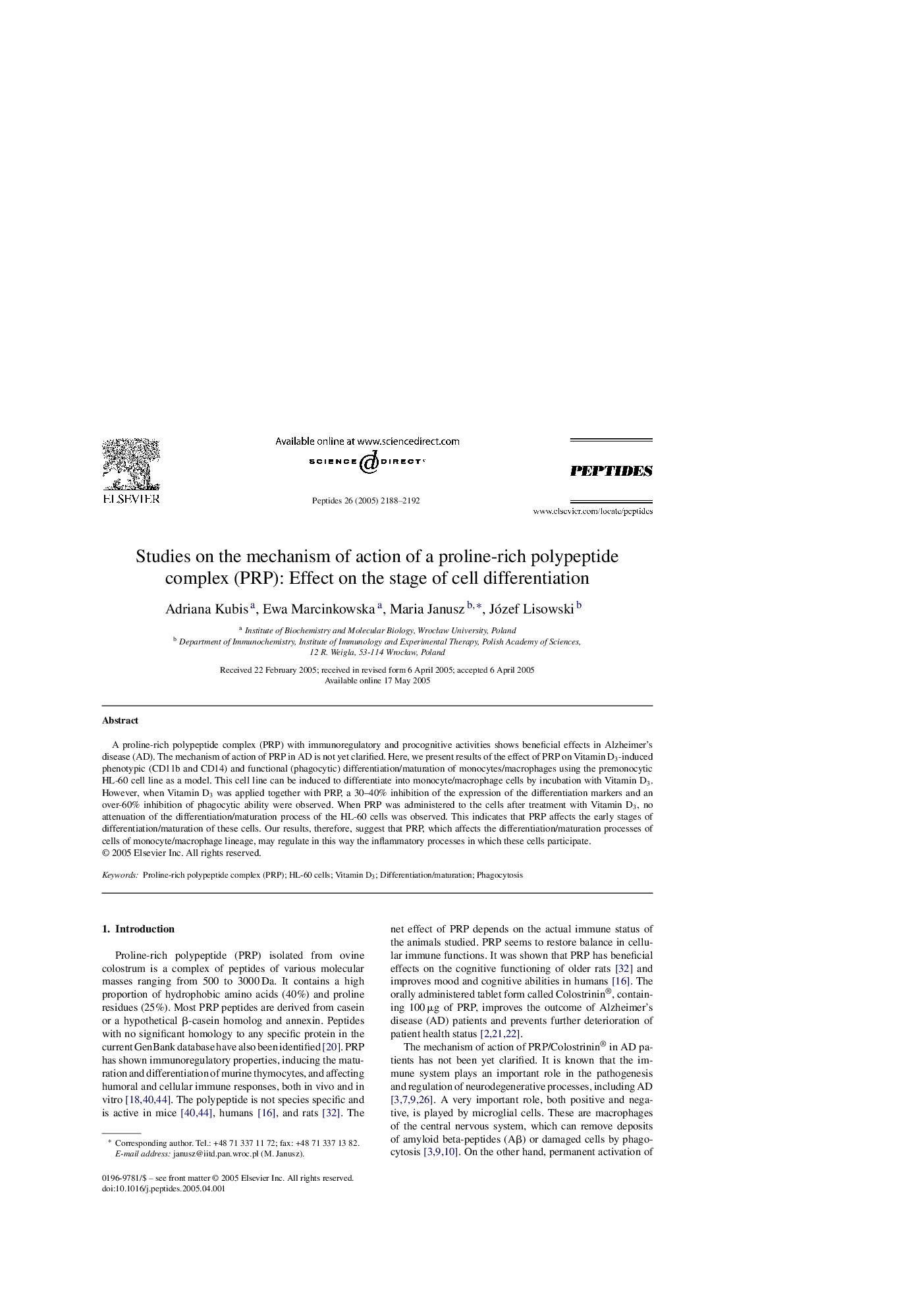| Article ID | Journal | Published Year | Pages | File Type |
|---|---|---|---|---|
| 2008779 | Peptides | 2005 | 5 Pages |
A proline-rich polypeptide complex (PRP) with immunoregulatory and procognitive activities shows beneficial effects in Alzheimer's disease (AD). The mechanism of action of PRP in AD is not yet clarified. Here, we present results of the effect of PRP on Vitamin D3-induced phenotypic (CD11b and CD14) and functional (phagocytic) differentiation/maturation of monocytes/macrophages using the premonocytic HL-60 cell line as a model. This cell line can be induced to differentiate into monocyte/macrophage cells by incubation with Vitamin D3. However, when Vitamin D3 was applied together with PRP, a 30–40% inhibition of the expression of the differentiation markers and an over-60% inhibition of phagocytic ability were observed. When PRP was administered to the cells after treatment with Vitamin D3, no attenuation of the differentiation/maturation process of the HL-60 cells was observed. This indicates that PRP affects the early stages of differentiation/maturation of these cells. Our results, therefore, suggest that PRP, which affects the differentiation/maturation processes of cells of monocyte/macrophage lineage, may regulate in this way the inflammatory processes in which these cells participate.
